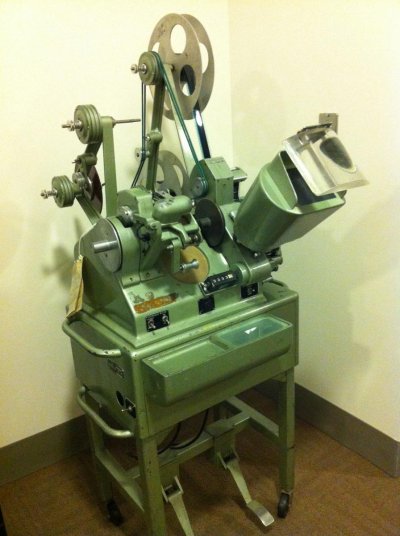Efficiently is a funny word there. Wanna bet that more will be uploaded and watched on YouTube just today in these 24 hours than the professional film media will put out in the next entire year?
It's easy to load tons of simple fluff stuff to the internet which is what most of it is. In that regard you are correct and efficiency may have been the wrong word. Of course, there is a wee bit of difference between somebody's iPhone video of their girlfriend riding a skateboard for the first time and say,
The Imitation Game.
What I meant by "efficiency" is the ability to deliver a complex project on time and on cost and be exactly what the customer wants. In this regard, the next generations seem to have a really tough time. I believe it is because they are losing the ability to think for themselves and have to have a ton of confirmation from others. Hence the constant "communication" with texts, etc. Nothing wrong with this but it takes time and in this business, taking time escalates cost and antagonizes customers.
There is no question that these folks are bright, creative, and energetic. Which is why I always include them in the conceptual phase of a project. But watching them try to do the tasks that are demanded in this industry is like watching paint dry in terms of progress. They are as exuberant as hell and have lively meetings and are constantly talking about doing this, that and the other. But in terms of actually getting the job done, they are far, far slower than what the industry demands, at least today.
Of course, the end result will be that everything will happen slower as industry devolves to match the way the newer generations work. How management, stockholders, customers, etc. will deal with the increased production time and vastly increased cost remains to be seen. As I said earlier, the company I work for is dealing with it by simply eliminating employees wherever possible and replacing them with machines. This and farming work out to other countries where the productivity problem doesn't exist. This works in some industries but not in others.
When I was in my early 20's, there were a bunch of great industry guys who took me on and taught me from their experience. I like to think that I'm giving something back to the next generation in the same way.
I think that is a terrific attitude and I commend you for it. If you have the good fortune to work in an industry or environment where you can do this--- and the people you're mentoring are receptive--- it's a great thing to do. I do that as much as I can, but the environment I work in actually puts up roadblocks to doing this. The reasons are far to complicated to describe here.
The other problem that has occurred in our design and manufacturing areas is the younger generations refusing to listen to the "old timers." This is a big reason why our most recent program was such a disaster. In the past, every new program examined the previous programs to learn what worked and what didn't work. The new guys listened to the old guys and the lessons learned were applied to the new program.
This was not done on our newest major program because it was decided to start with a clean piece of paper despite the warnings of what would probably occur. All the warnings came true and the program fell into turmoil and confusion. Eventually, the financial and customer relation penalties to the company became so staggering that we brought back the top people from the previous program in an effort to get things back on the rails.
I know some of these guys because I worked with them on the previous program. And what they told me was this--- the newer generation people, for want of a better term, refused to listen to them. Unlike the previous two generations--- boomers and WWII--- the new folks put no value on the experience the previous generation people had in running the most successful program with the best product the company has ever had.
And so the new program staggered on as it had been, the penalties continued (and continue) to mount, the product itself was flawed in countless ways, we missed the delivery date by years, and the customers continue to be pissed off.
Mentoring is a two-way street. If both parties are receptive, it's a fabulous thing to do.






